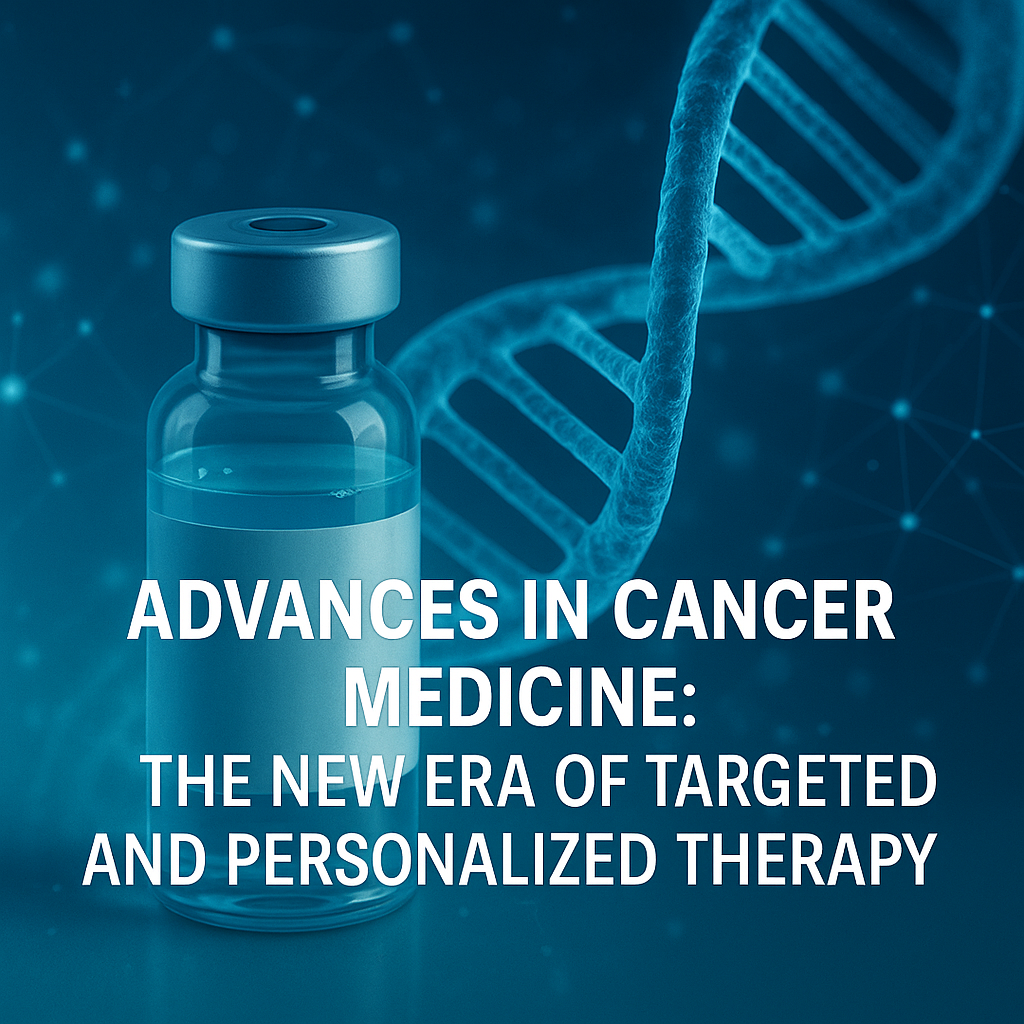The Rise of Integrative Oncology: Blending Conventional and Natural Approaches
🌱 Introduction
Cancer treatment has evolved rapidly in recent years, offering patients more hope and options than ever before. But while traditional medicine focuses on targeting the disease, many patients want to support their body’s overall strength, energy, and resilience during treatment.
This is where Integrative Oncology comes in — a field that merges evidence-based conventional medicine (like chemotherapy or immunotherapy) with complementary therapies such as nutrition, supplements, mind-body practices, and repurposed drugs.
Integrative oncology is not about replacing standard treatment — it’s about enhancing recovery, reducing side effects, and improving quality of life.
🧬 What Is Integrative Oncology?
Integrative oncology is a patient-centered approach that aims to:
- Support the body’s natural healing processes
- Manage treatment-related side effects (like fatigue, nausea, or pain)
- Reduce stress and anxiety
- Improve sleep, mood, and energy levels
It combines scientific evidence with holistic care, giving patients the best of both worlds.
An oncologist might recommend:
- Meditation or yoga to reduce stress
- Nutritional counseling to support immunity
- Natural supplements (like melatonin or curcumin) under supervision
- Safe repurposed medicines that may complement treatment research
The key is balance — working alongside your doctor to create a personalized plan that aligns with medical science and your individual needs.
💊 The Core Principles of Integrative Oncology
- Evidence-Based Approach
Every therapy used must have some scientific basis — no unproven or harmful remedies. - Personalized Treatment
Each patient’s body, mind, and condition are unique. Integrative care adapts to your journey. - Team Collaboration
Doctors, nutritionists, and therapists work together for a shared goal — your healing. - Patient Empowerment
Patients actively participate in their recovery, making informed choices about lifestyle and therapy.
🩸 Modern Medicine Meets Natural Wisdom
The beauty of integrative oncology lies in how modern pharmacology and natural medicine work hand in hand.
For example:
- Melatonin, widely known for regulating sleep, is being studied for its antioxidant and immune-supportive effects during chemotherapy.
- Curcumin, the active compound in turmeric, has anti-inflammatory and potential anti-cancer properties observed in lab studies.
- Fenbendazole and Mebendazole, antiparasitic drugs, are being researched for their possible role in altering cancer cell metabolism.
These substances are not cures, but early findings indicate they could support the body’s ability to manage treatment stress.
⚕️ How Integrative Oncology Supports Patients
1. Managing Side Effects
Chemotherapy and radiation often cause fatigue, nausea, neuropathy, and immune suppression.
Integrative oncology introduces nutritional therapies, natural antioxidants, and stress-reduction techniques that can ease these symptoms safely.
2. Improving Emotional Health
Mind-body practices like meditation, art therapy, and guided breathing have been clinically shown to reduce anxiety and depression in cancer patients.
3. Strengthening Immunity
A diet rich in antioxidants, vitamins, and phytonutrients can help boost the immune system and improve recovery speed.
4. Enhancing Treatment Response
Some natural compounds are being explored for their potential to enhance the effectiveness of conventional treatments by improving metabolic balance.
💡 Always consult your oncologist before adding any new supplement or therapy. Even natural compounds can interact with medications.
🌿 Key Supplements in Integrative Oncology Research
| Compound | Area of Research | Notes |
|---|---|---|
| Melatonin | Immune regulation, oxidative stress | Supports sleep, helps balance circadian rhythm |
| Curcumin | Inflammation, cell growth pathways | Potent antioxidant; best taken with black pepper extract |
| Mebendazole | Drug repurposing in cancer metabolism | Experimental use in lab studies |
| Fenbendazole | Microtubule disruption in tumor cells | Still under research; safe sourcing essential |
| Vitamin D3 & Zinc | Immune health | Often recommended for overall resilience |
All these compounds are intended for research or supportive care — not standalone cancer treatments.
🛡️ Safety First: Why Guidance Matters
The biggest misconception about “natural medicine” is that it’s automatically safe. In reality:
- Some herbs can interfere with chemotherapy drugs.
- High doses of vitamins can alter treatment absorption.
- Repurposed medicines like Fenbendazole should be used only under professional supervision.
Integrative oncology thrives when medical and natural care coexist, guided by experts who understand both.
🌏 The Future of Integrative Oncology
As global interest grows, research institutions are conducting more studies on how nutrition, exercise, stress management, and repurposed drugs can influence cancer outcomes.
Emerging technologies — such as personalized genomics and AI-driven therapy planning — will soon allow integrative oncology to become even more individualized.
Patients are now partners in their care — informed, empowered, and supported by science.
🏥 Why Oncostore Supports Integrative Oncology
At Oncostore, we understand that patients don’t just want medicines — they want clarity, confidence, and care.
That’s why we:
- Provide authentic, research-grade medicines and supplements
- Share knowledge-backed articles to promote awareness
- Ensure secure shipping and verified sourcing
🌿 Explore our Integrative Oncology Collection, featuring authentic supplements like Melatonin 60mg, Fenfit 500 (Fenbendazole 500mg), and Mebfit 100 (Mebendazole 100mg) — all verified for purity and reliability.
💬 Conclusion
Integrative oncology represents the best of both worlds: the precision of modern medicine and the nurturing touch of holistic wellness.
By combining treatments that target both the disease and the person behind it, this approach offers a path to healing with balance, hope, and science.
At Oncostore, we’re proud to be part of that journey — helping you make informed, safe, and confident choices for your health.


